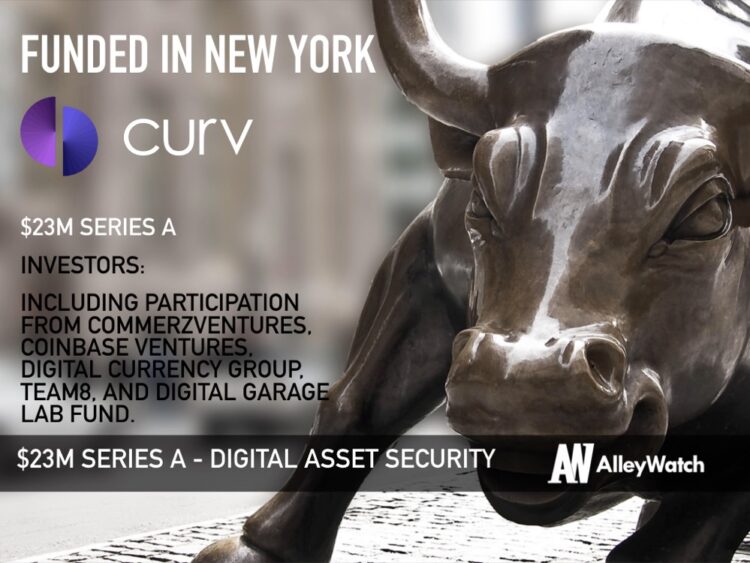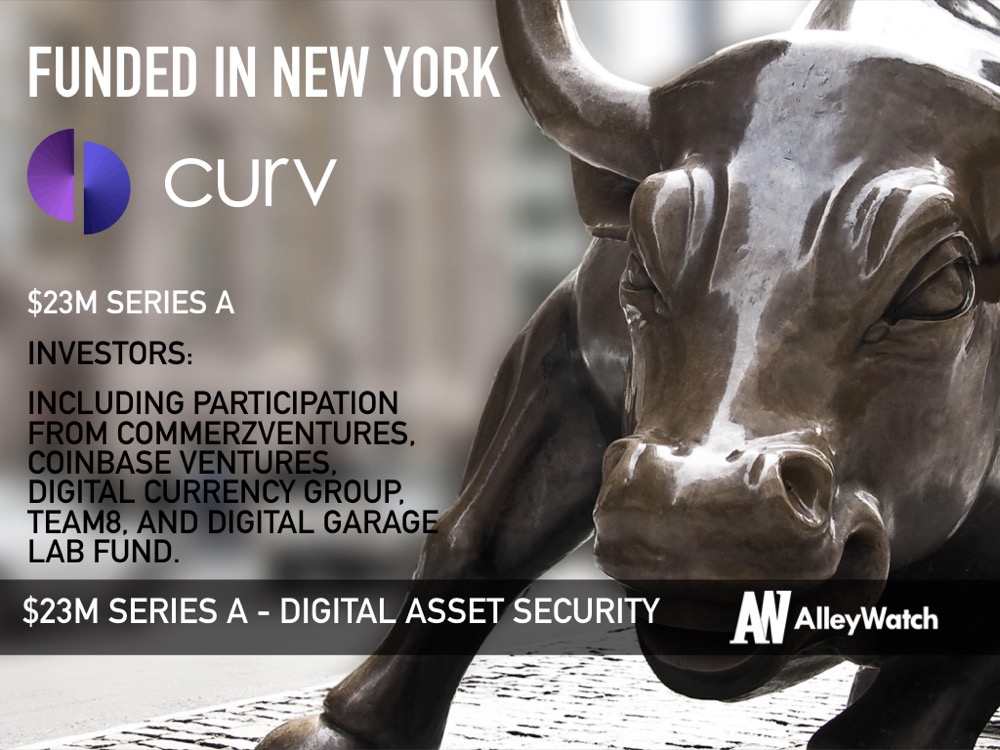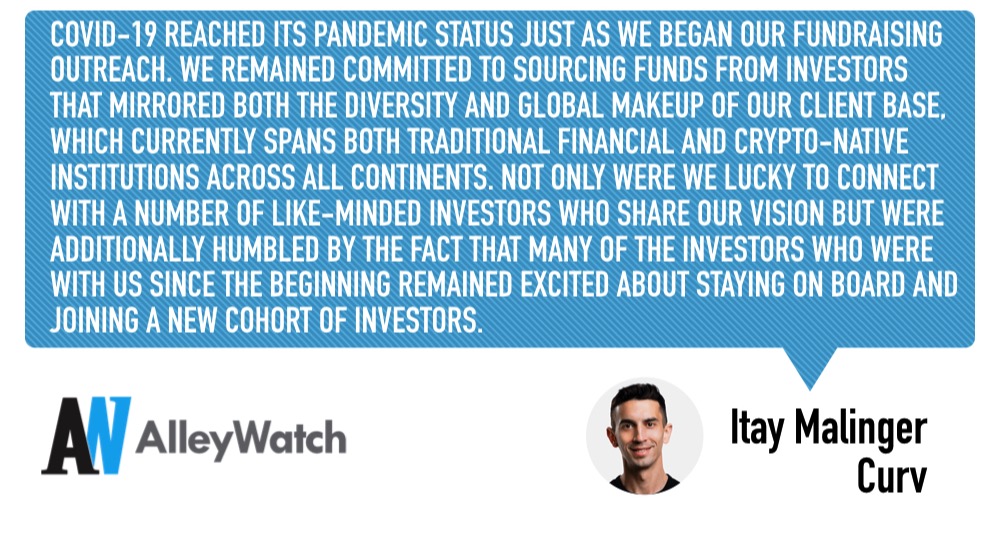In the Annual Defense Budget Bill, the U.S. House of Representatives passed two amendments to the National Defense Authorization Act (NDAA) addressing the potential of using distributed ledger technology (DLT) for defense purposes and classifying it as an emerging technology, which would allow blockchain to be included in future assessments. From the governments to the enterprises, institutions are enamored with the promise of this technology but need to ensure that digital assets have the proper security infrastructure to protect from any threats. Curv is the digital asset security infrastructure that the safety of financial institutions and large crypto-native institutions enterprises that are working with digital assets. Private keys allow user to access accounts, but these keys, on hardware, leave accounts vulnerable to cyberattacks. Curv eliminates the need for private keys by creating the only cloud-based multi-party computation (MPC) technology to safely transfer, store, and manage any digital asset on any blockchain or DLT. Curv’s technology is the first of its kind to achieve SOC2 Type II Certification. Clients in various industries including enterprise software, B2B marketing, and financial services have already adopted Curv.
AlleyWatch caught up with CEO and Cofounder Itay Malinger to learn more about Curv’s technology and growth, integration plans, and latest round of funding, which brings the total funding raised to $29.5M across three rounds.
Who were your investors and how much did you raise?
Curv raised its $23M Series A round. Investors included CommerzVentures, Coinbase Ventures, Digital Currency Group, Team8, and Digital Garage Lab Fund
 Tell us about the product or service that Curv offers.
Tell us about the product or service that Curv offers.
Curv is the world’s most trusted digital asset security infrastructure that is delivered as a fully scalable, enterprise-grade, and compliant cloud service. Curv’s multi-party computation (MPC) technology simultaneously provides institutions the protection, instant availability, and total autonomy over digital assets required to thrive in the digital economy.
What inspired the start of Curv?
We saw the promise of blockchain, but we knew if that promise was to be realized we had to eliminate the single point of failure introduced by private keys. Our unique expertise in cryptography and cloud security allowed us to create a secure, distributed architecture for signing transactions. This allows any institution or enterprise to quickly and easily hold and exchange digital assets on public or private blockchains without managing private keys on outdated physical infrastructures.
How is Curv different?
Unlike other cryptographic legacy solutions, Curv eliminates any single point of failure and the need for a private key with its unique multi-party computation (MPC) technology. Unlike others, Curv also does not force suboptimal compromises between digital asset security, liquidity, and control. Curv is the only cloud-based, MPC wallet service for institutional digital assets and the first of its kind to achieve SOC2 Type II Certification. The company’s mathematically secure, off-chain, and distributed approach delivers the most trusted, flexible, and scalable way to sign transactions and manage any digital asset on any blockchain or ledger.
What market does Curv target and how big is it?
Curv caters to both traditional financial institutions and large crypto-native institutions. Our customers include leading exchanges, custodians, OTC desks, brokers, traditional financial institutions, and digital asset managers.
What’s your business model?
SaaS model
How has COVID-19 impacted the business?
As more and more institutions adopt digital assets, the focus on them as a target by cyber attackers continues to grow. To increase security, many institutions have been relying more heavily on physical storage (cold wallets) to protect their digital assets. In today’s world, however, as we are mandated to social distance, physical access to those machines by the people authorized to access them may not be possible (or may take a long time). Curv’s product easily facilitates remote work and allows for instantaneous access to all digital assets. As a cloud-based service, it doesn’t matter if physical access is suddenly unavailable, customers can still always transact. Accordingly, demand for our infrastructure remains relevant (arguably more so since COVID-19). Curv is committed to helping institutions remain nimble and respond to new conditions as they come up without sacrificing the security or availability of their digital assets.
What was the funding process like?
COVID-19 reached its pandemic status just as we began our fundraising outreach. We remained committed to sourcing funds from investors that mirrored both the diversity and global makeup of our client base, which currently spans both traditional financial and crypto-native institutions across all continents. Not only were we lucky to connect with a number of like-minded investors who share our vision but were additionally humbled by the fact that many of the investors who were with us since the beginning remained excited about staying on board and joining a new cohort of investors. All in all, the investment team assembled is well-positioned to support our growth and scale our business globally. They all share our belief that to thrive in the digital asset economy you need Curv’s security infrastructure.
What are the biggest challenges that you faced while raising capital?
The biggest challenges we encountered involved travel restrictions as a result of COVID-19 and our inability to meet face-to-face with many VCs and shake their hands. Despite this, we had many productive conversations (over Zoom, of course) with all parties. We were extremely fortunate to have an oversubscribed round of funding. And yes, an entire fundraising process can indeed be conducted virtually over video. We even shared the news with the company over a virtual toast.
What factors about your business led your investors to write the check?
Distributed ledger trading and new crypto finance products are swiftly being adopted by financial institutions across the globe. Curv is unlocking this market for participants and accelerating institutional adoption with our security infrastructure. Our investors back teams that can articulate how they are going to dominate their target market. Curv plans to do just that. We have a high level of credibility in a variety of relevant areas: cybersecurity, digital assets, enterprise software, as well as B2B marketing and sales in financial services. For these reasons, our investors chose to invest in Curv and its mission.
What are the milestones you plan to achieve in the next six months?
Curv plans to grow its team and technology, solidify our position as the most secure digital asset security infrastructure, and further serve our client base around the globe.
What advice can you offer companies in New York that do not have a fresh injection of capital in the bank?
Stay the course. Despite the fact that we started our fundraising efforts as COVID-19 reached its pandemic status, we were steadfast in our view that the best companies would get funded and Curv was one of those companies. The bar will, no doubt, be higher and investors will be particularly interested in how your business is continuing to grow despite challenges brought on by COVID. Most importantly, make sure you can clearly articulate why your product matters and why it will win the market.
We were steadfast in our view that the best companies would get funded and Curv was one of those companies.
Where do you see the company going now over the near term?
We’ve built a strong foundation of clients across a range of verticals – exchanges, custodians, traders/brokers, and now traditional firms. As their technology partner, these clients are looking to leverage Curv to help manage operational costs while driving forward new revenue opportunities.
While we don’t want to share too much yet of what’s coming next, a good example would be our work on the regulatory front. We’ve been able to deliver our Curv Air Gap solution to help regulated firms meet their requirements to maintain assets completely offline. We’ve also recently announced our partnership with Elliptic, where clients can now cryptographically enforce compliance policies and demonstrate that to their regulators.
Similarly, on the decentralized finance (DeFi) front we recently launched an integration with Compound, offering secure DeFi opportunities to our clients where institutions can set parameters and enforce DeFi policies across their organizations.
All these offerings and more have been critical to our work with the traditional market segment and we will continue to deliver solutions to meet their needs.
What’s your favorite outdoor dining restaurants in NYC?
I regard Pylos in the East Village as the best Greek restaurant in town. I also really like Nur, Meir Adoni’s Pan-Middle Eastern style restaurant in Gramercy. Adoni is an Israeli chef I follow and have historically enjoyed his restaurants back in Tel Aviv.
You are seconds away from signing up for the hottest list in New York Tech! Join the millions and keep up with the stories shaping entrepreneurship. Sign up today




